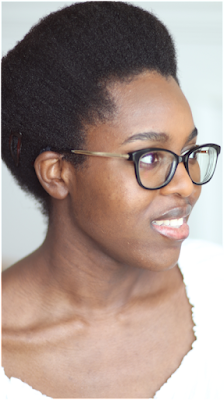Nakhati Jon interview
AUTHOR INTERVIEW
A little introduction:
When did your love of books begin?
I started as a slow reader in grade school and
hated to read as a child. My sister encouraged me to read, but to no avail.
Then as a teen, I got involved in a youth group at a local church that rewarded
us when we read one of the books. Well, the first book was about a doctor who
served in Bangladesh (Daktar by Viggo Olsen); I could not put the book
down and fell in love with a sense of hope. Thus, my faith in Christ gave me a
love for reading.
When did you start to have the wish to become an author?
In Central Asia, I found a book in the
local language called, How to Train your Wife? The title intrigued me,
so I purchased the book and started to read similar books which the bazaar
promoted. I realized the great chasm in practice between what these writers
were saying and what Christianity said. I began to write to contrast the
difference and this research became a book in the local language (with help
from a dear Central Asian man). The more I researched, the more I desired to
write to bring clarity – which my dissertational work stimulated.
How have you found the process for becoming an author?
I love to get things checked off my list,
but writing requires much re-writing, editing, and proofing. I find the process
tedious but realize submitting mediocre work will close the book for readers. I
have taken two classes on publishing, attended numerous webinars on sorted
writing subjects, and continually seek to read about the process (currently
reading Writing Better by Andrew T. LePeau). I enjoy blocks of time to
write and attempt a significant time each week when possible. With my checklist
approach for editing, I break down items into smaller parts, like rewriting all
my intro sentences, reading for repeated ideas, and looking to eliminate words such
as: be, it, and the unlabeled-this. For me, the process
consists of 25% writing but 75% editing and rewriting.
What would you say to those wanting to become an author?
Write something every day. If you enjoy
this, then specialize in a genre or subject. In the book, Write your Book on
the Side by Hassam Osman, he suggests writing at least fifteen minutes daily.
I think his practical advice could encourage many who desire to write. I love
Dr. Joseph M. Stowell’s words, “Life is not determined by the dreams you dream
but by the choice you make.” If you want to write, you must choose to set aside
time, space, and quiet for this dream.
Tell us about your book/books:
I am currently writing a series called Exploring
Marriage in an Islamic Context. This series will contrast foundational
concepts from the Bible and the Quran concerning marriage. Today much
misunderstanding takes place between biblical covenant marriage and Islamic
contract marriage. These books meet this need to help those touched by an
Islamic community and possibly those married or thinking of marrying a Muslim.
Os Guinness is famous for saying,
"Contrast is the mother of clarity." This clarity became a reality
for our life in Central Asia and the Middle East. As the Islamic systems of
thought emerged around us, our biblical perspective exposed glaring differences.
In my writing, I share what many couples in this context have said about
marriage and what we observe despite our minority presence in these
communities.
The first book in the series Searching
Below the Surface: A Deeper look at Covenant and Contract
exposes the difference between the deity of the Bible and the Quran. The next
book, Defining Marriage: Sketching the Difference between
Covenant and Contract, will give practical definitions and practices to
clarify how couples can avoid contract tendencies and move toward greater
oneness. When this book comes out, I will also release a Western-based version
to contrast with secular contract marriage.
What do you love about the writing/reading community?
Diversity breeds creativity. I hope to glean
an education by interacting with the writing community. Shakil Choudhury said
in Deep Diversity, “Enhancing diversity, inclusion, and equity requires
both learning and unlearning about others and ourselves.” I make no mistakes in
realizing that my genre is quite a subgroup of readers, but learning/unlearning
has become part of my journey. In the spirit of Choudhury, I would say enhancing education, empathy, and apologetics requires
both wisdom to relate and insight to understand our faith and the spirituality
of others.
For the reading community, I welcome and love
to hear their insights into the challenges in relating to any interactions with
a Muslim community. Please connect with me on Twitter: NakhatiJ or my blog: www.Nakhatijon.com

.jpg)

Comments
Post a Comment